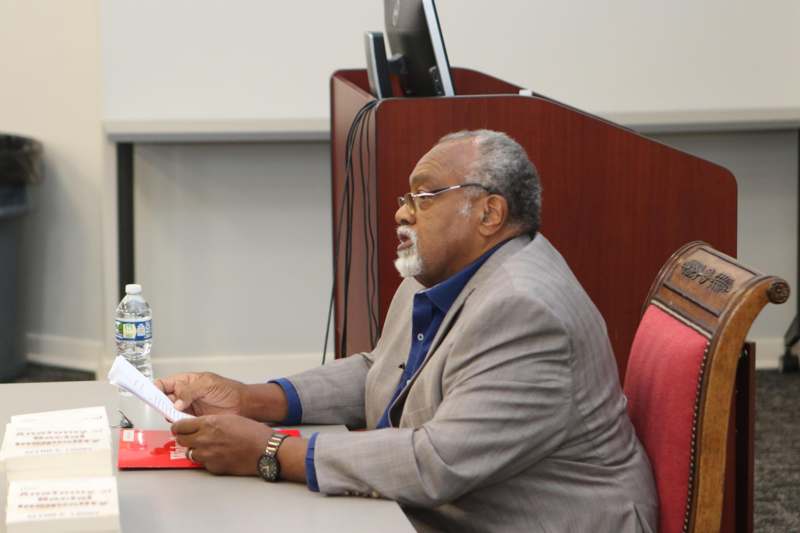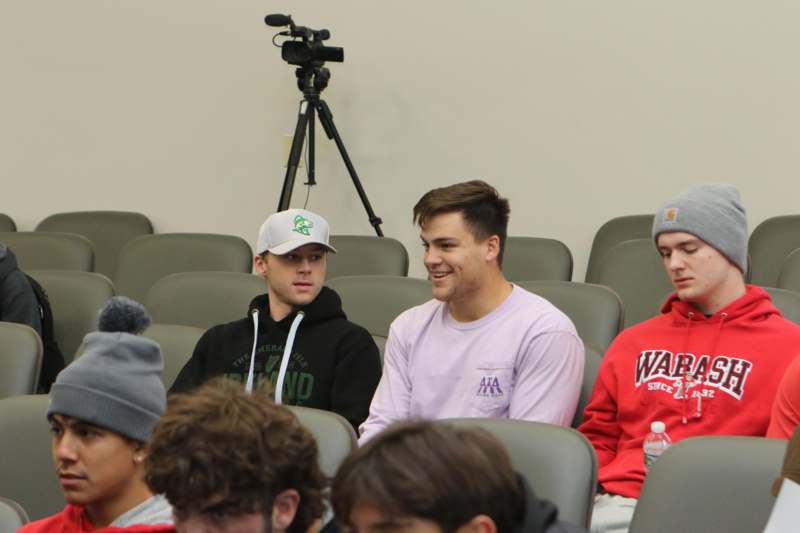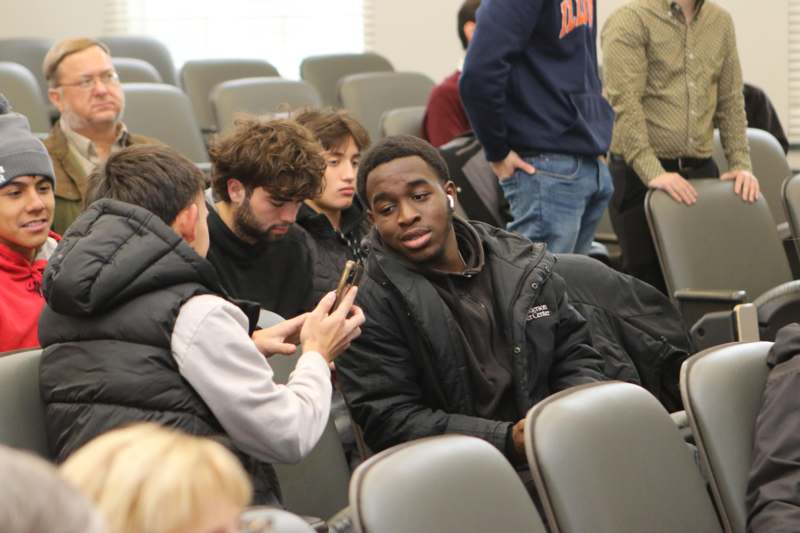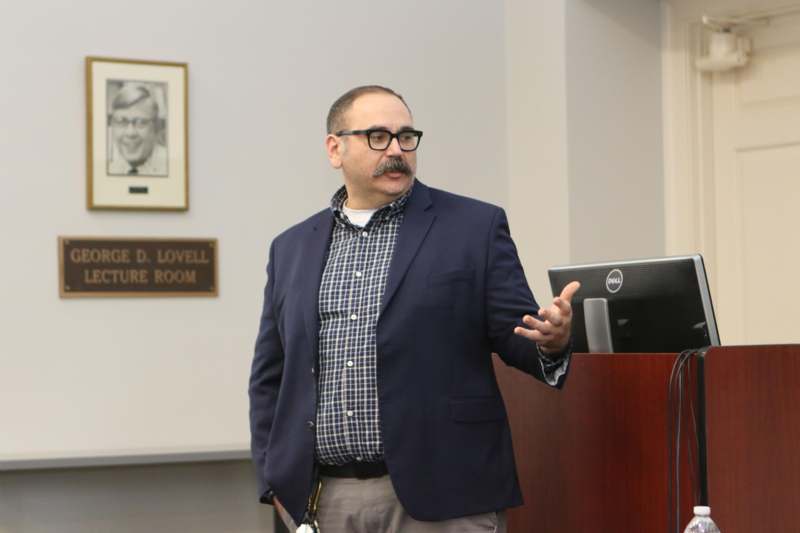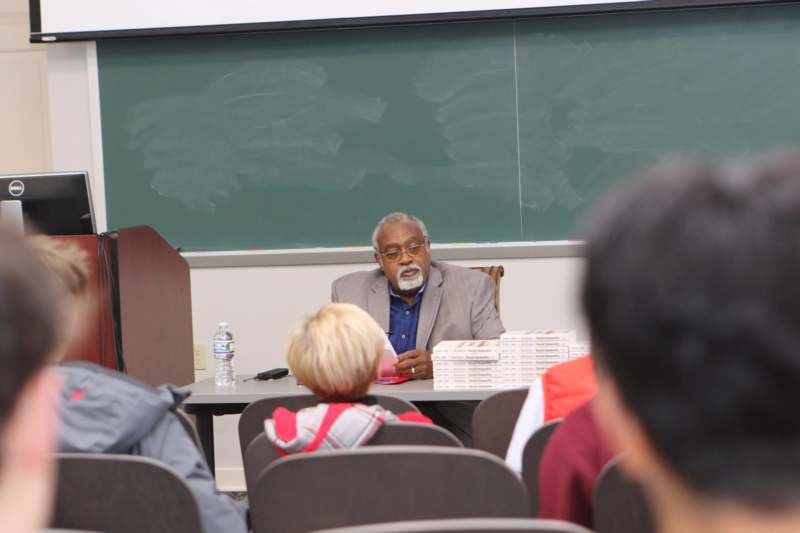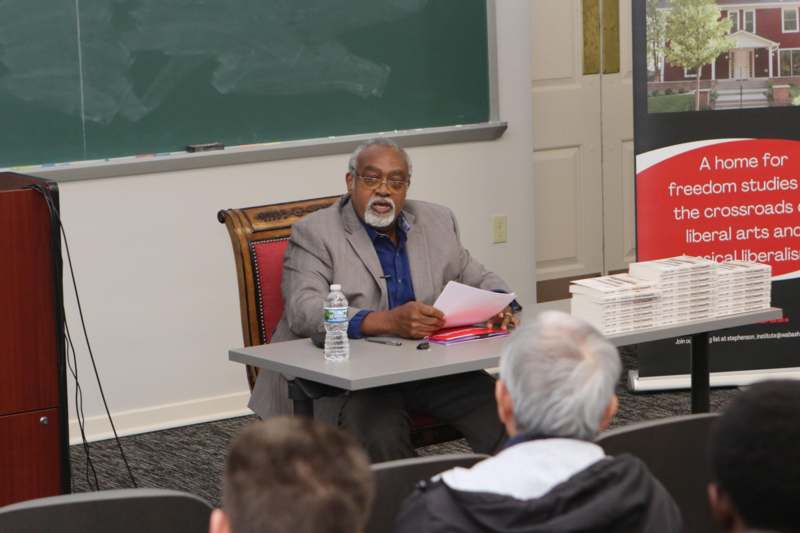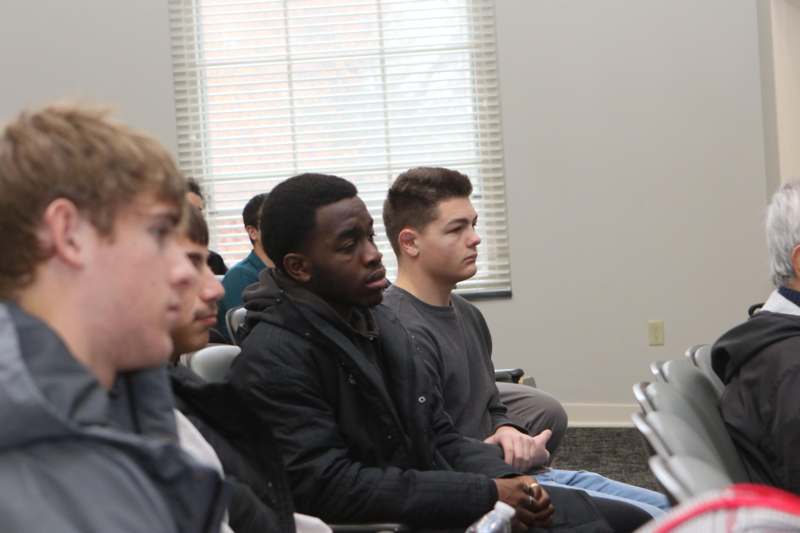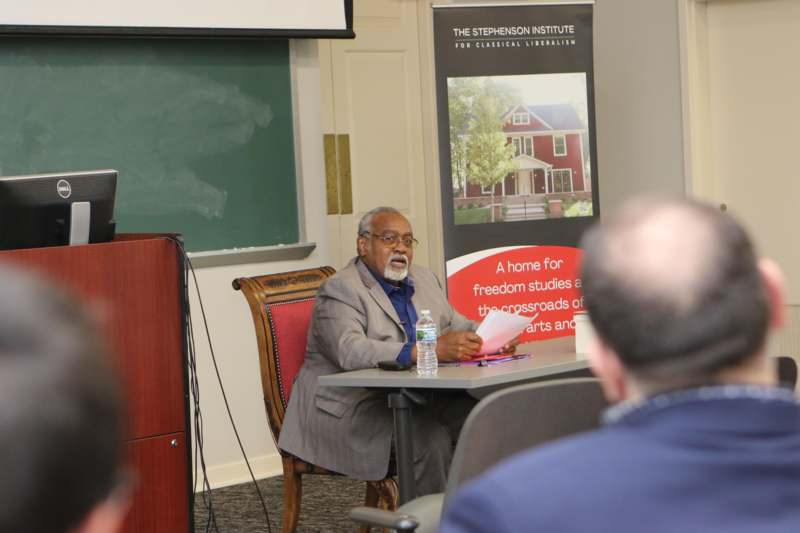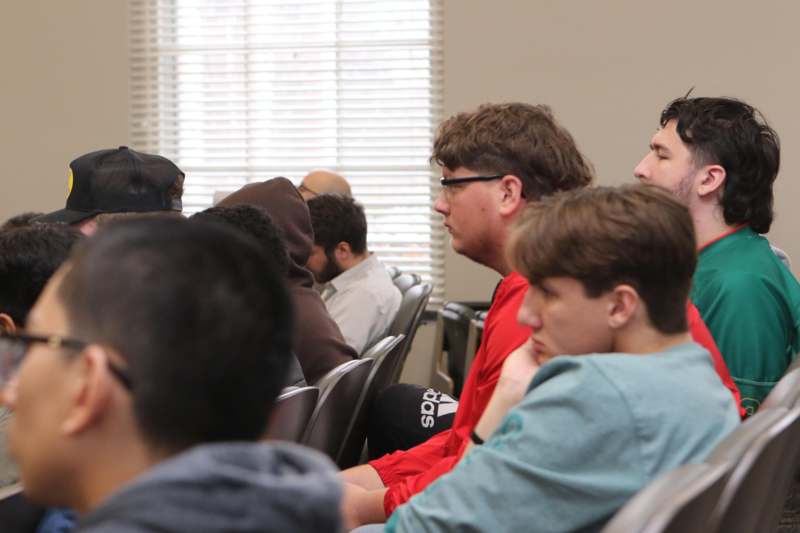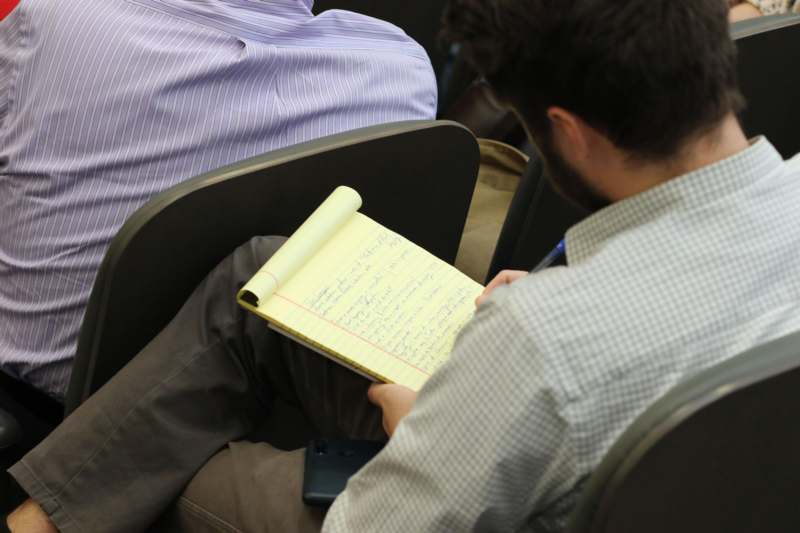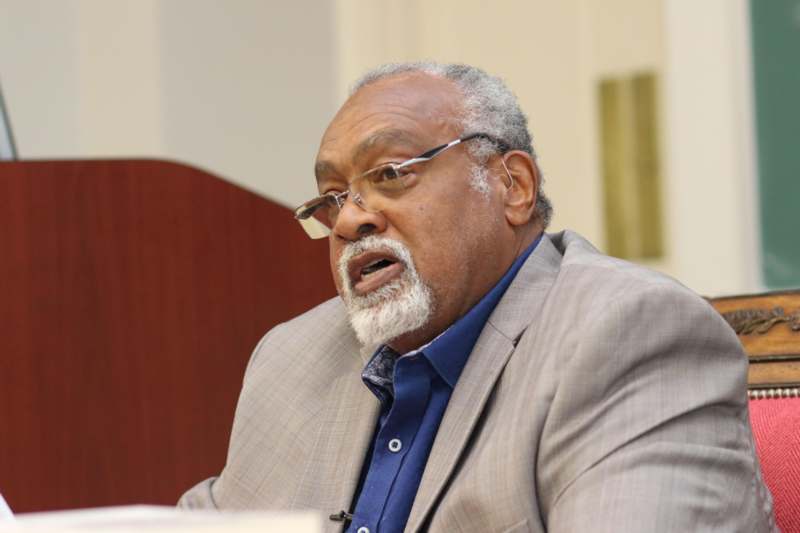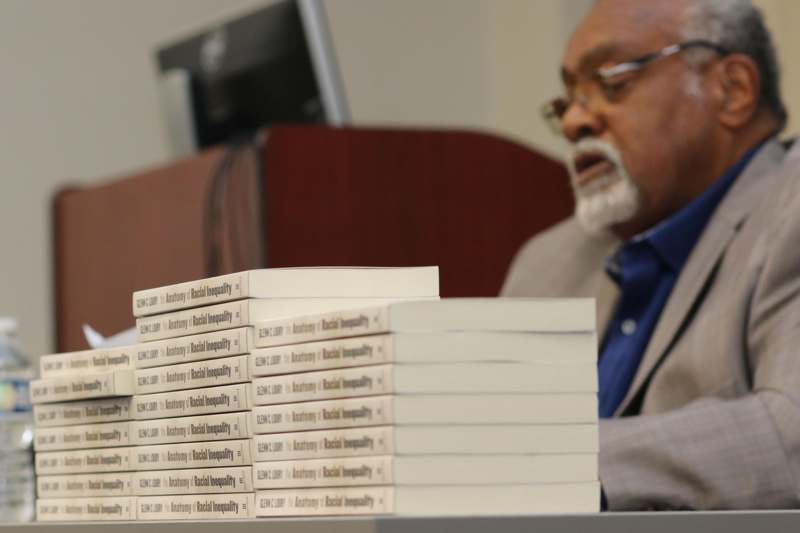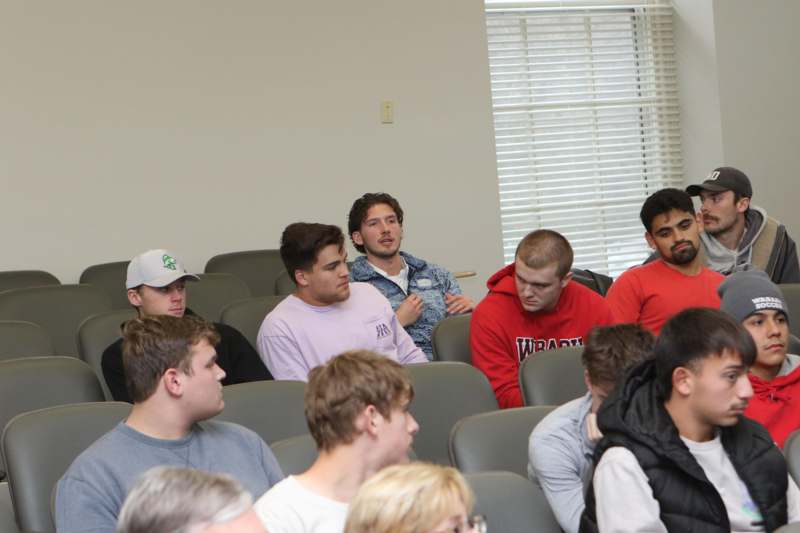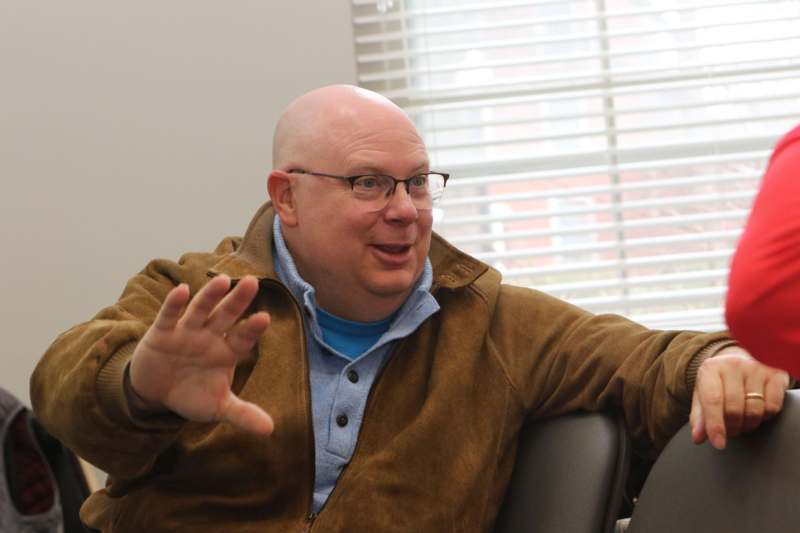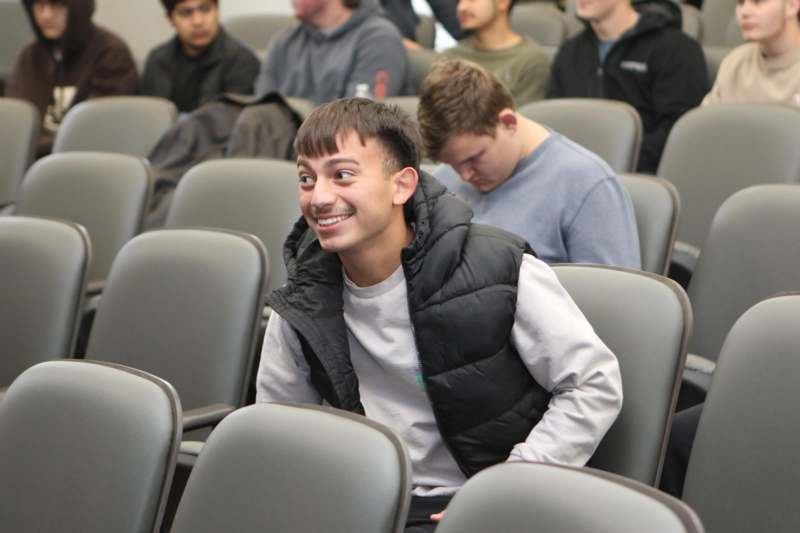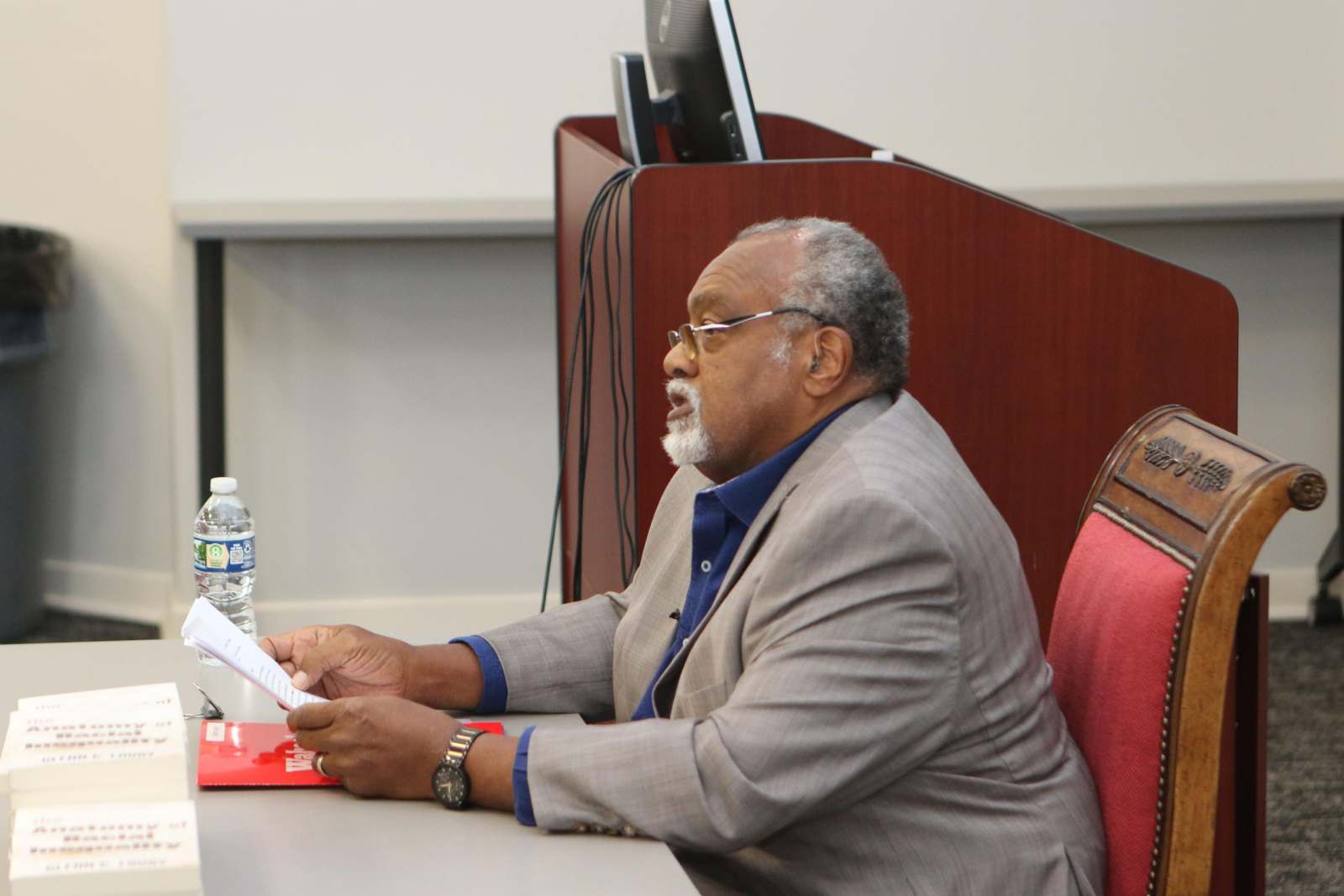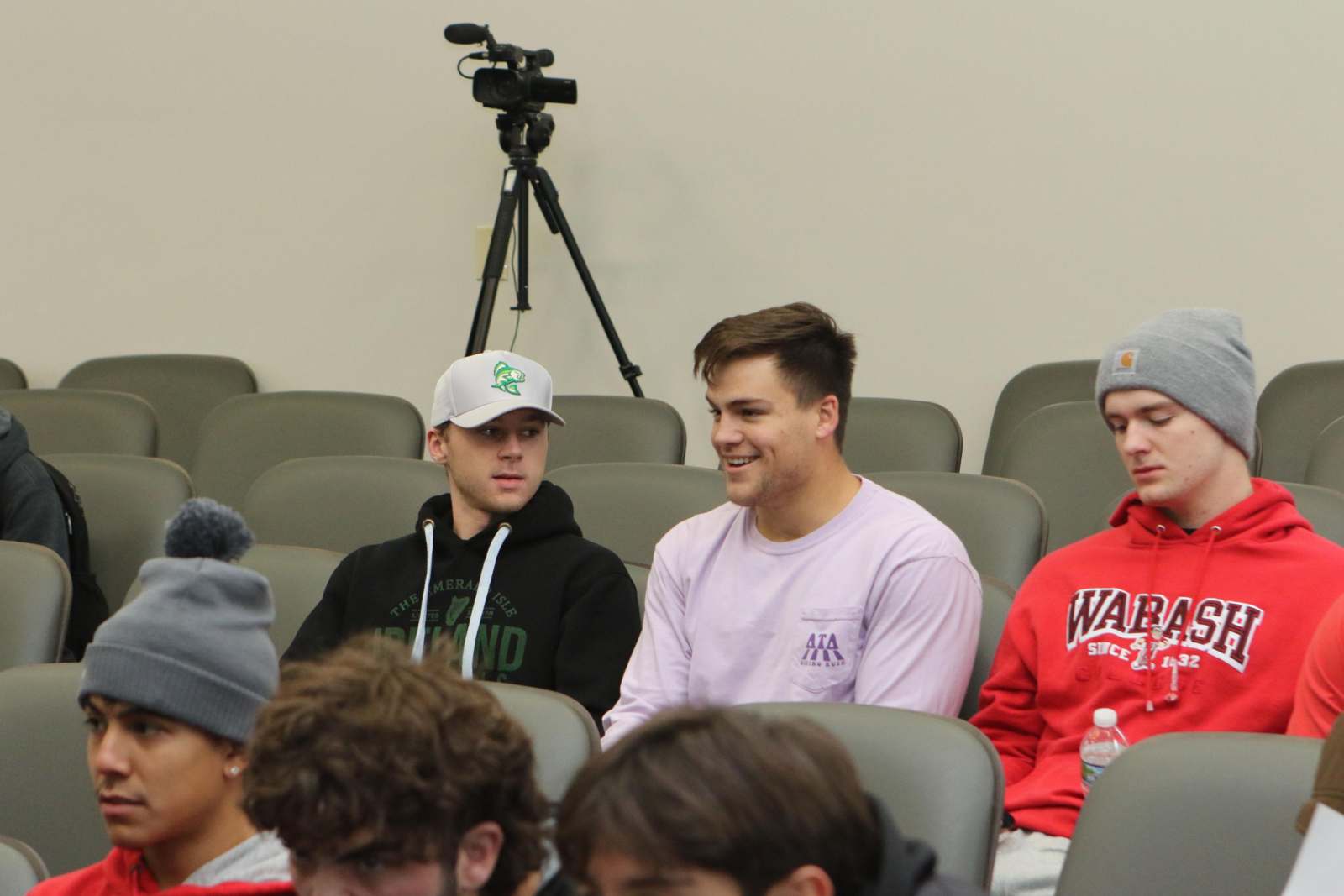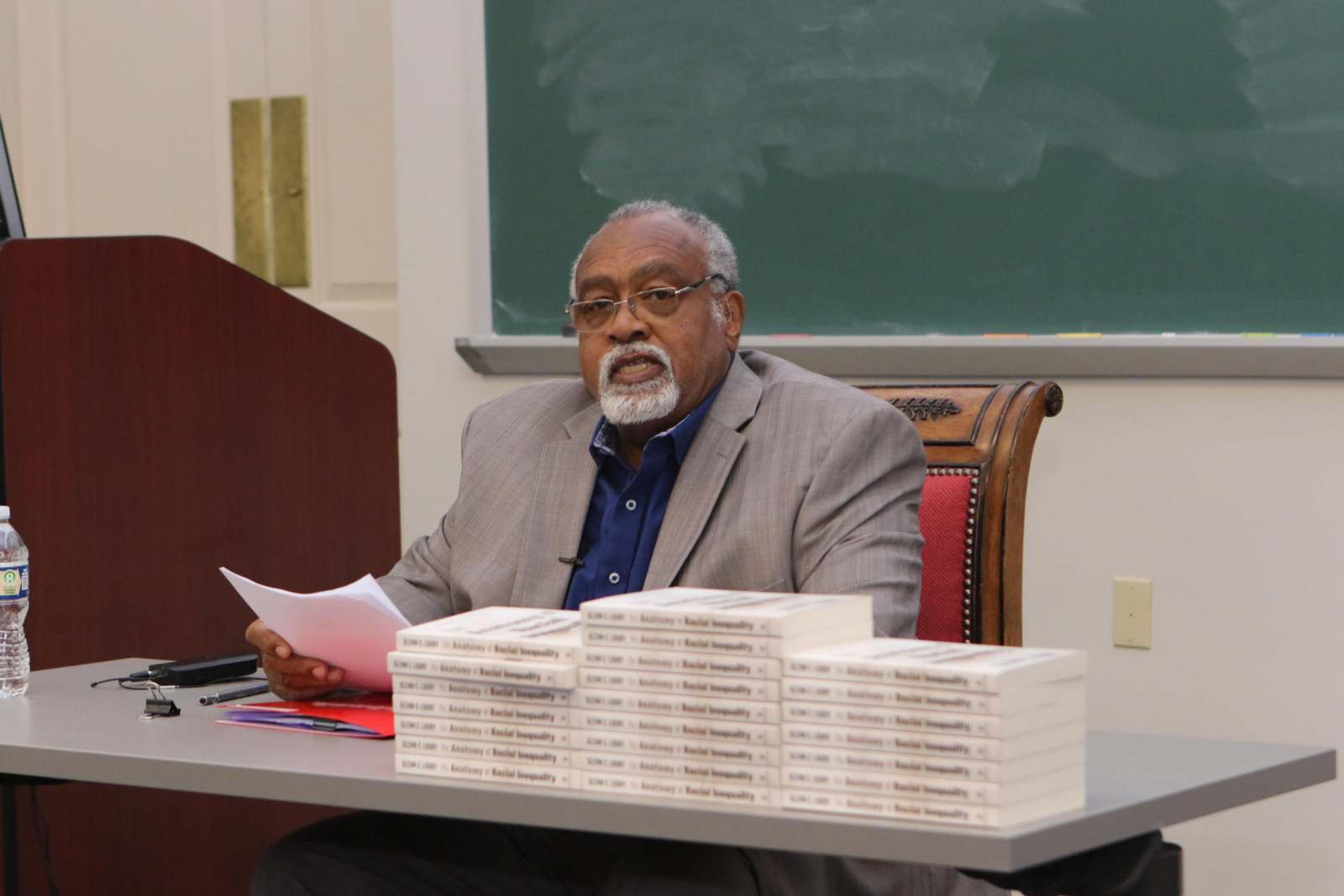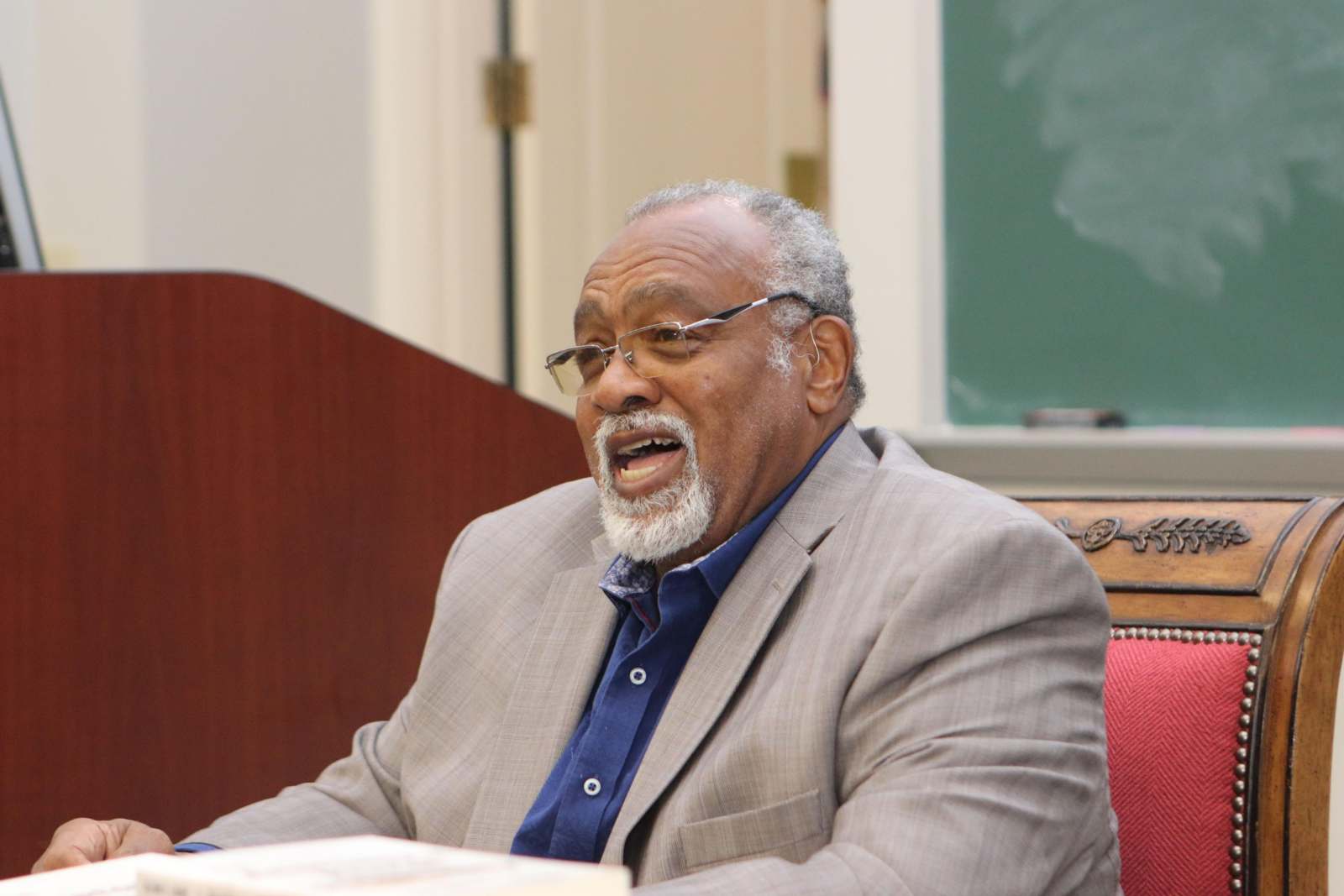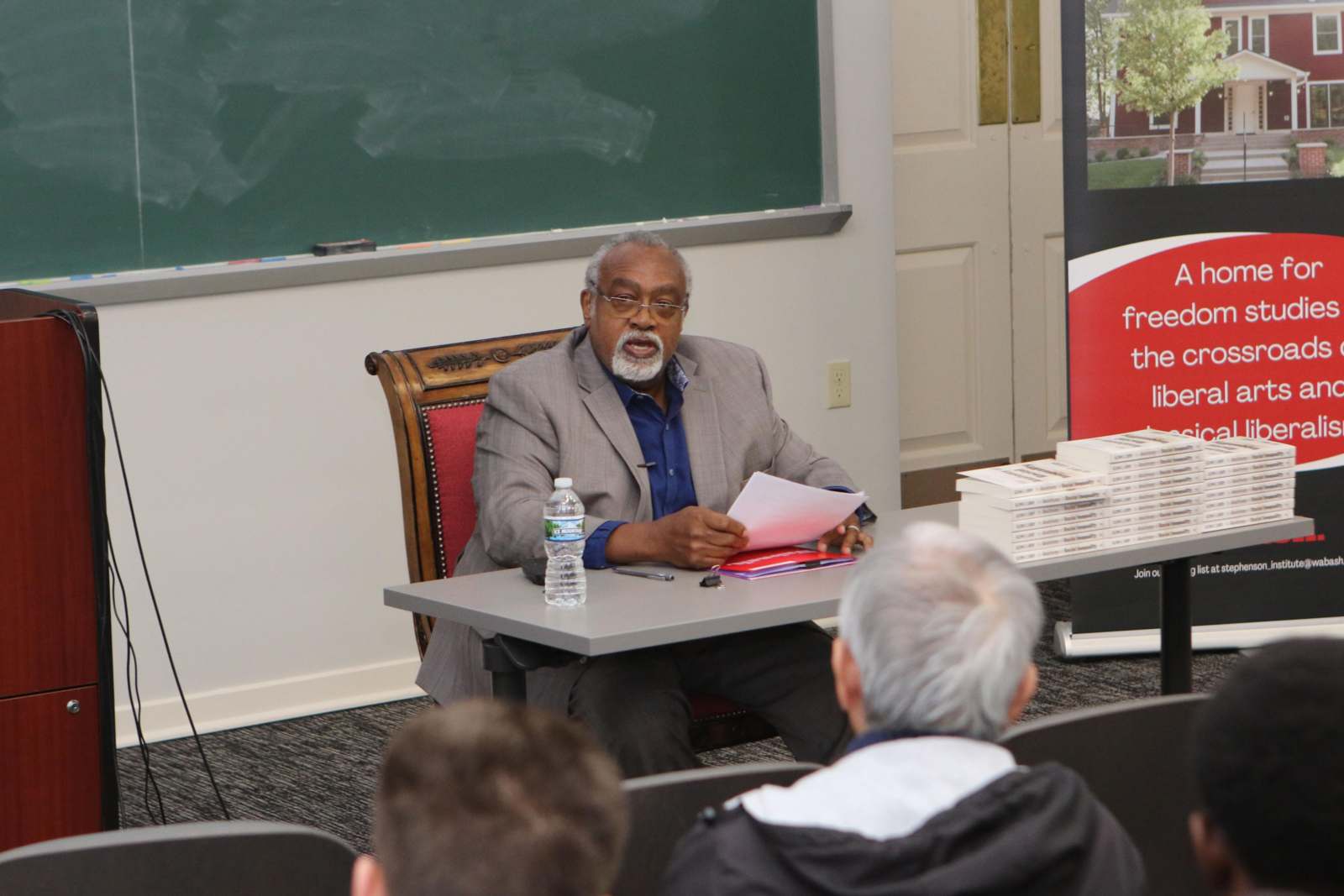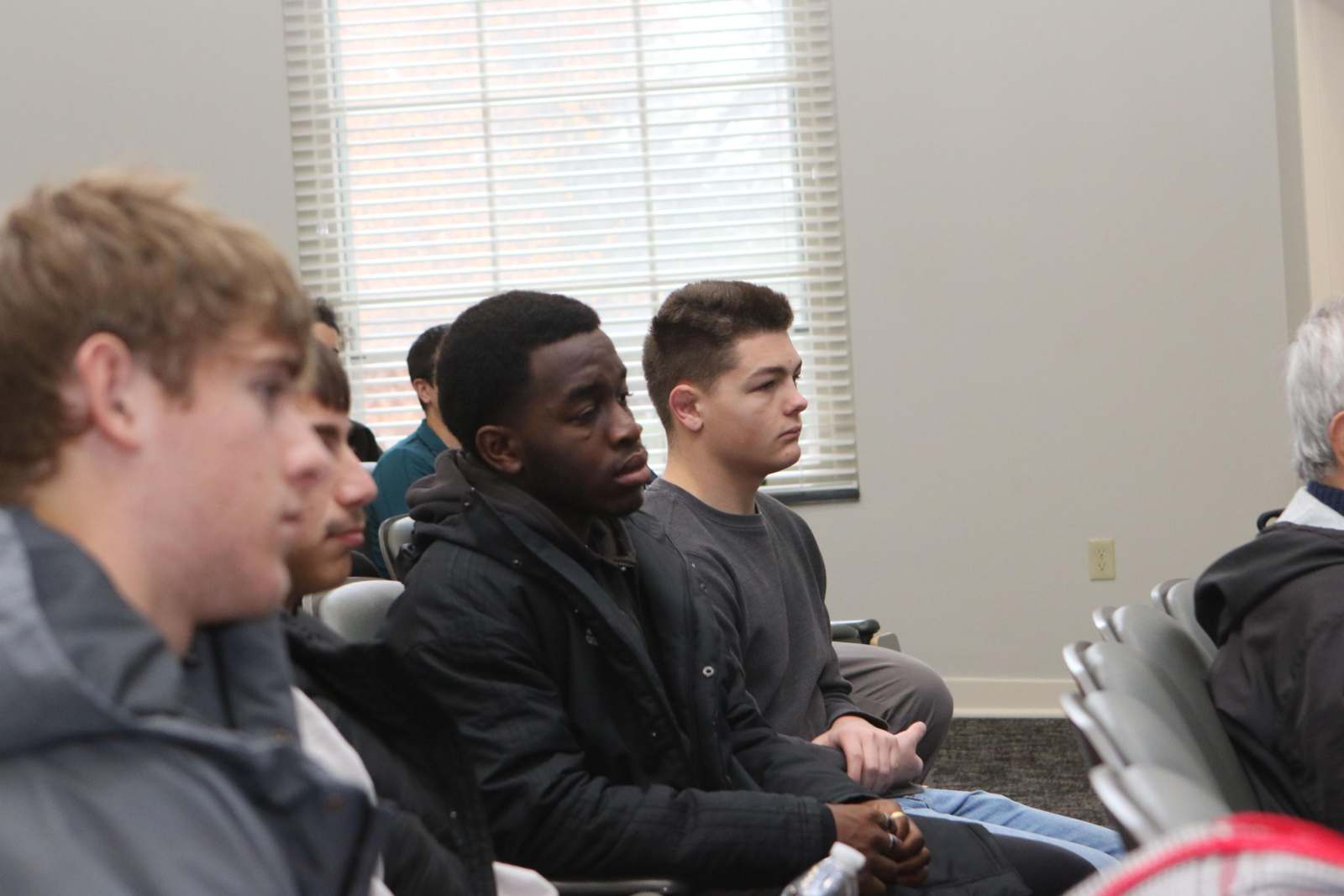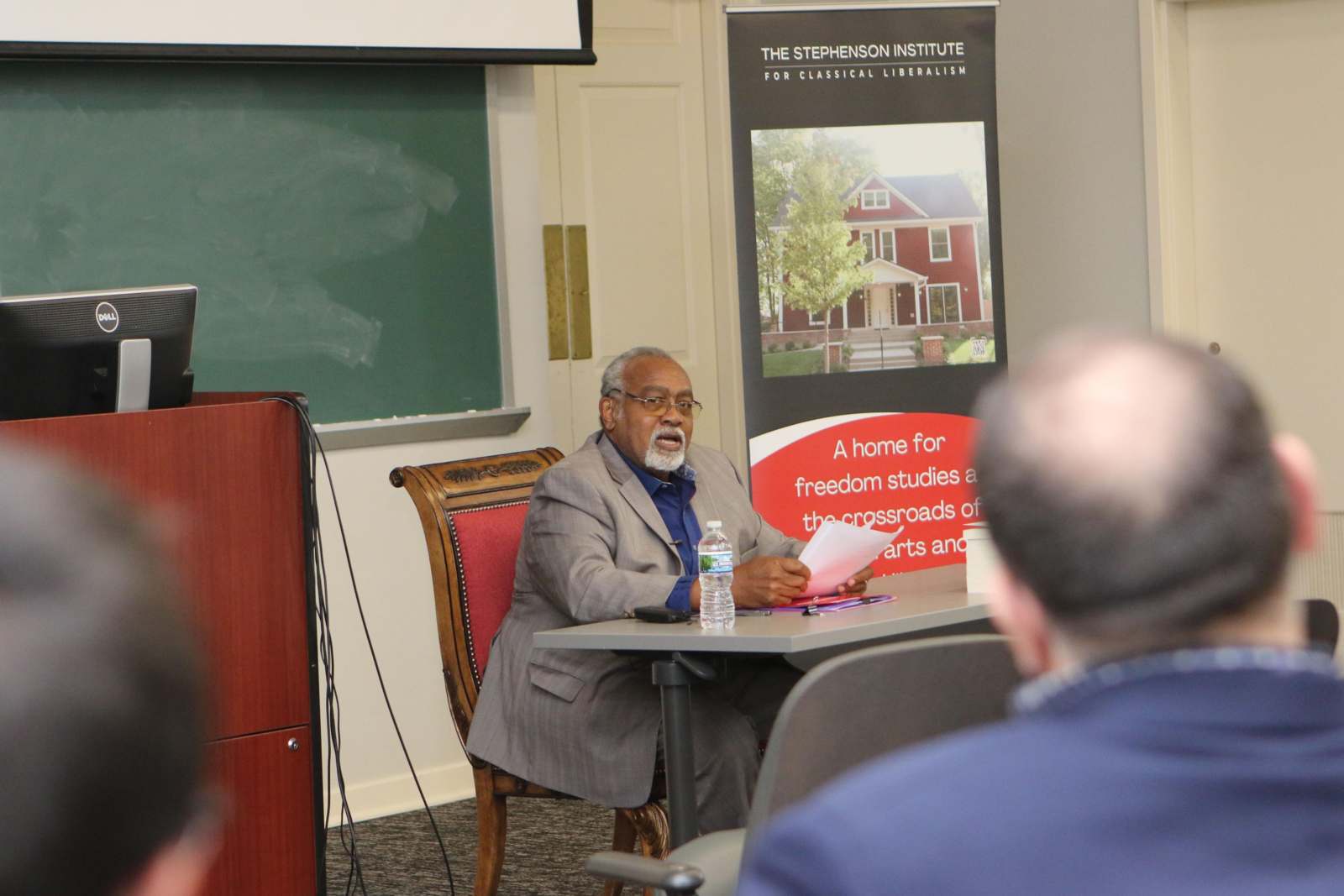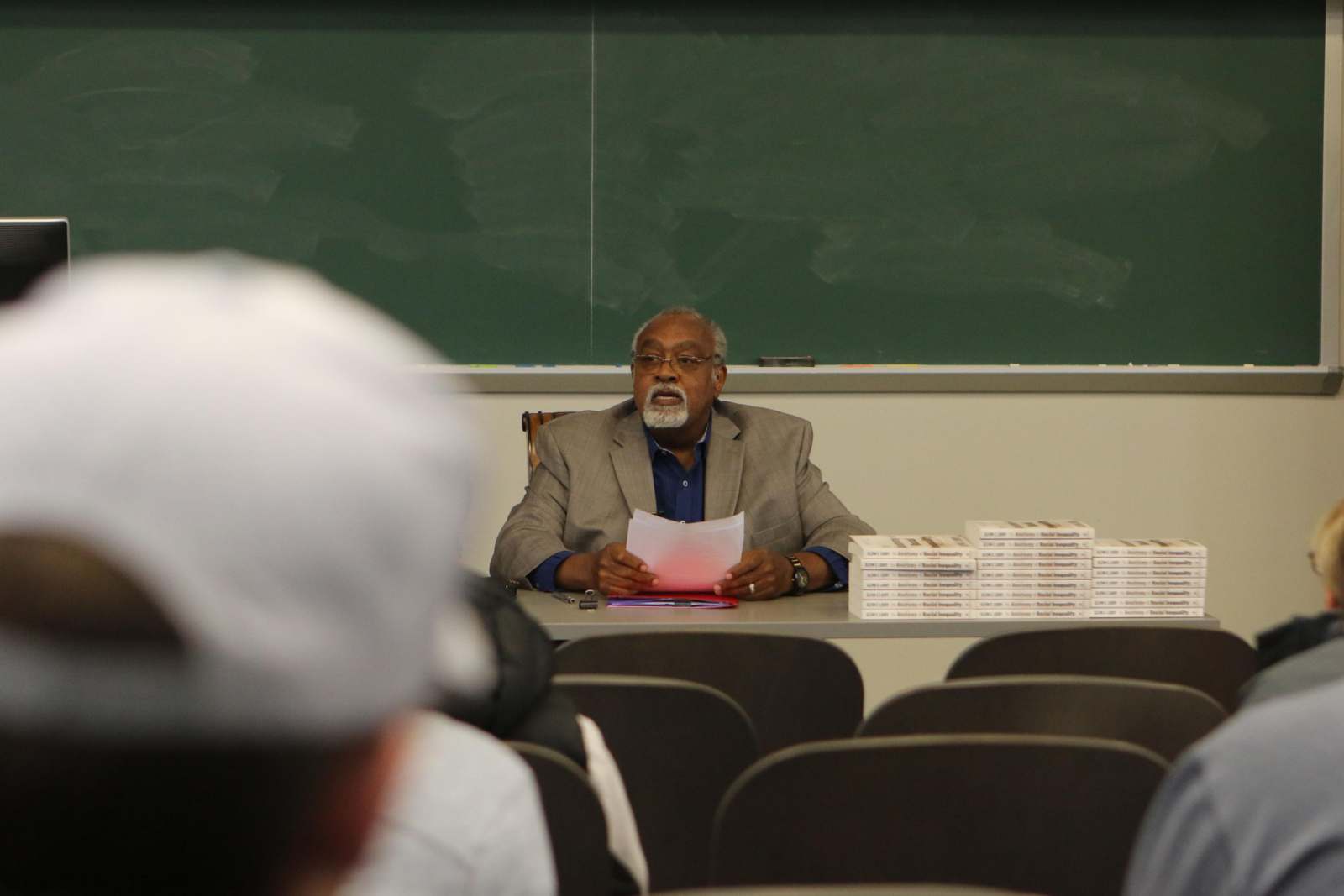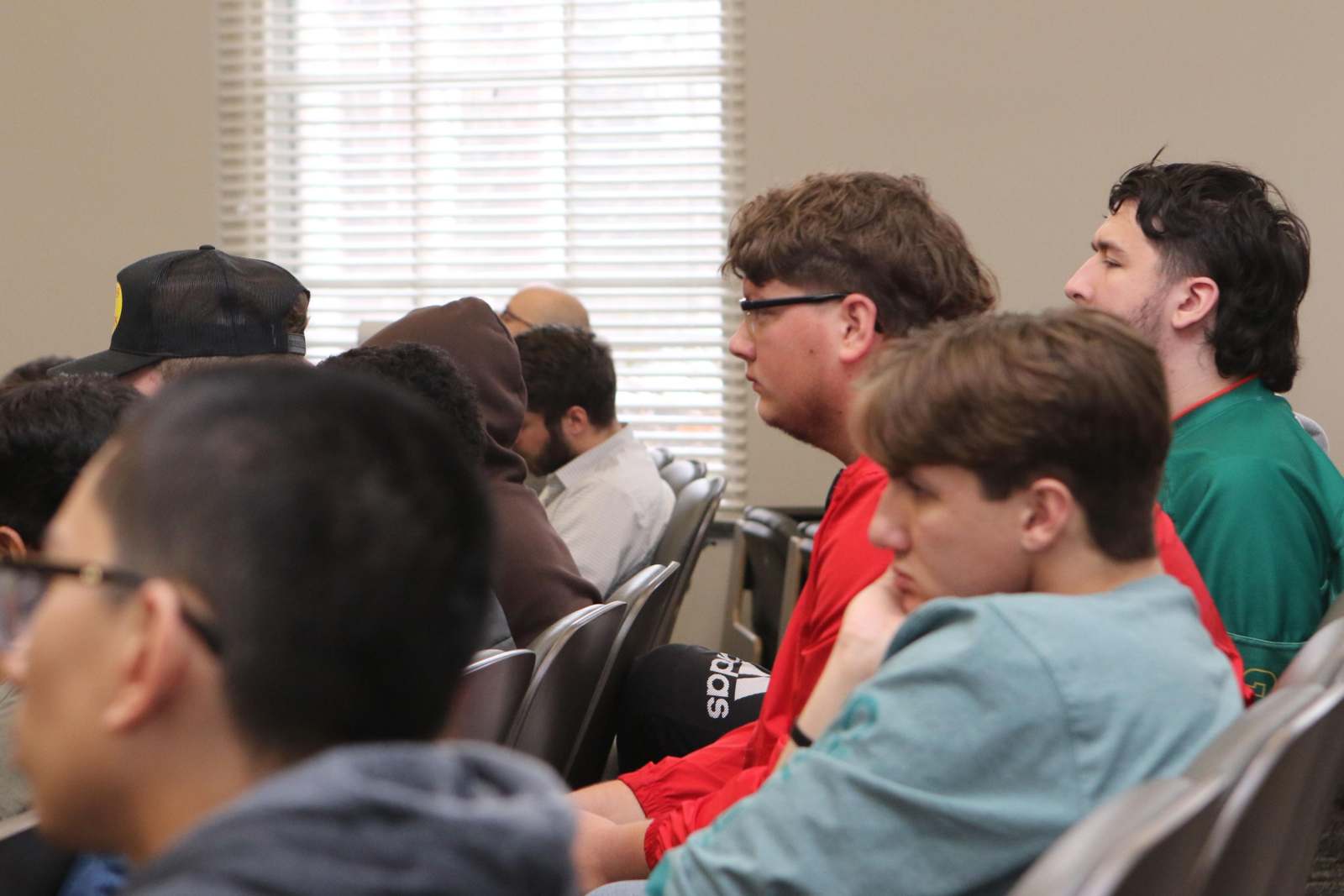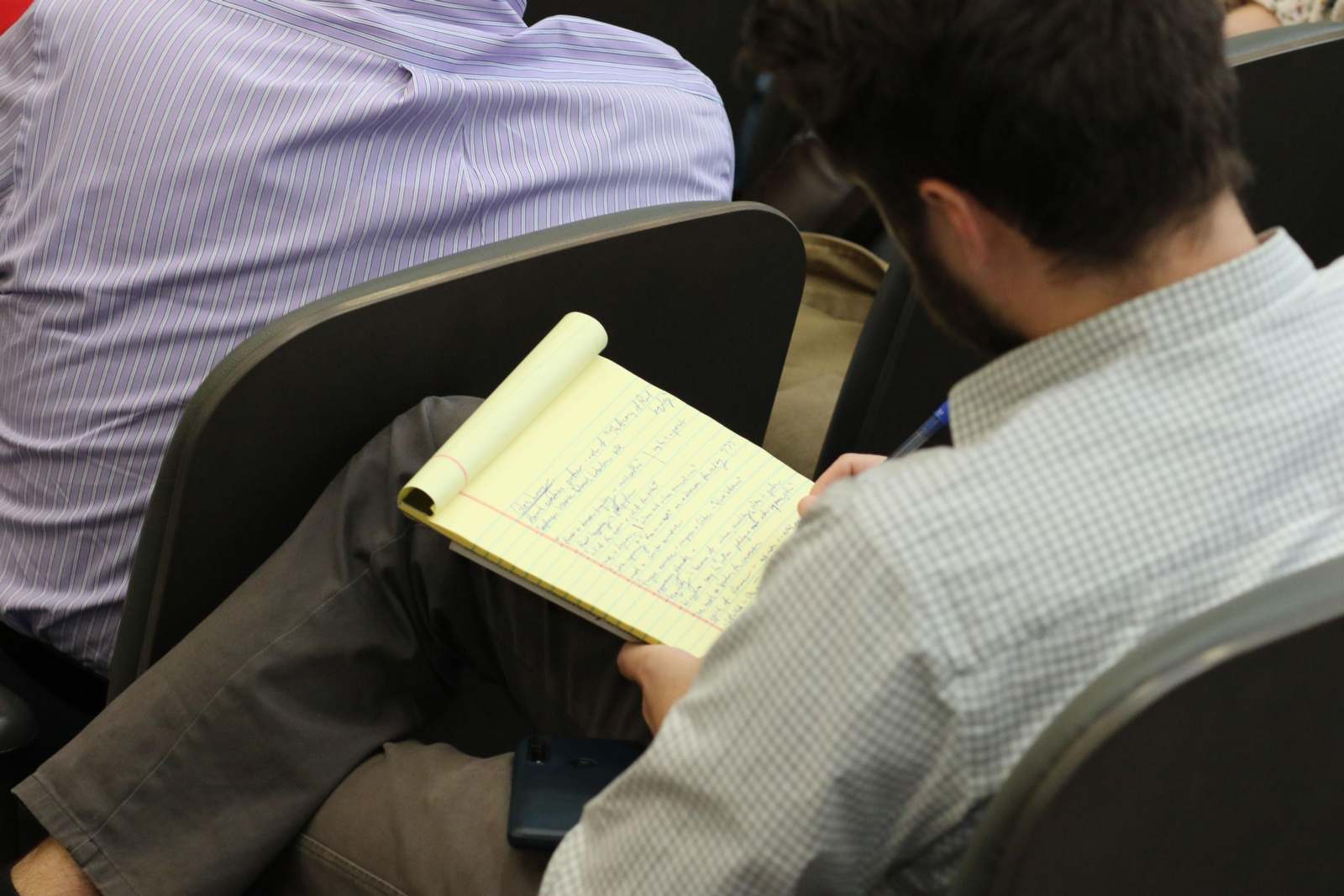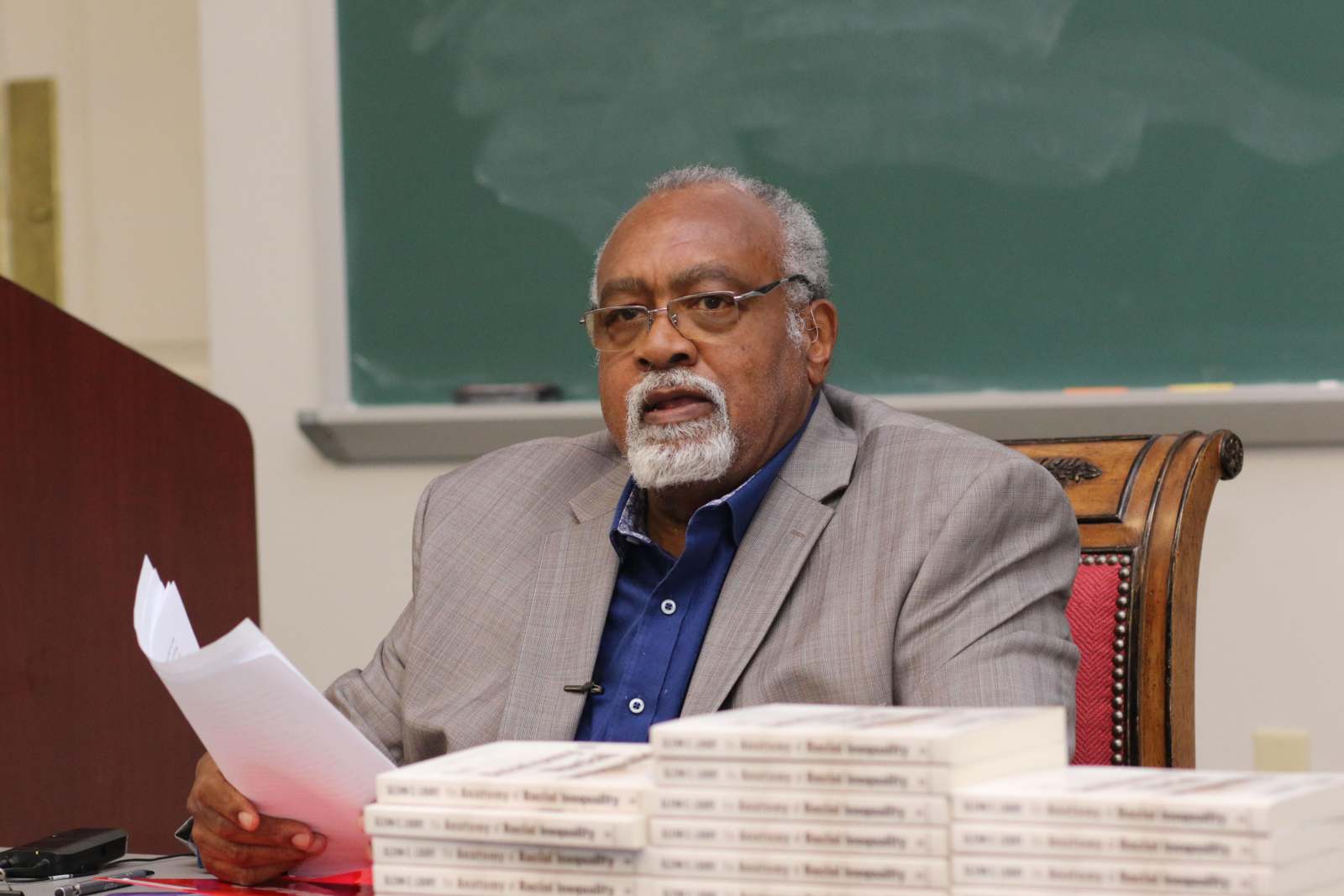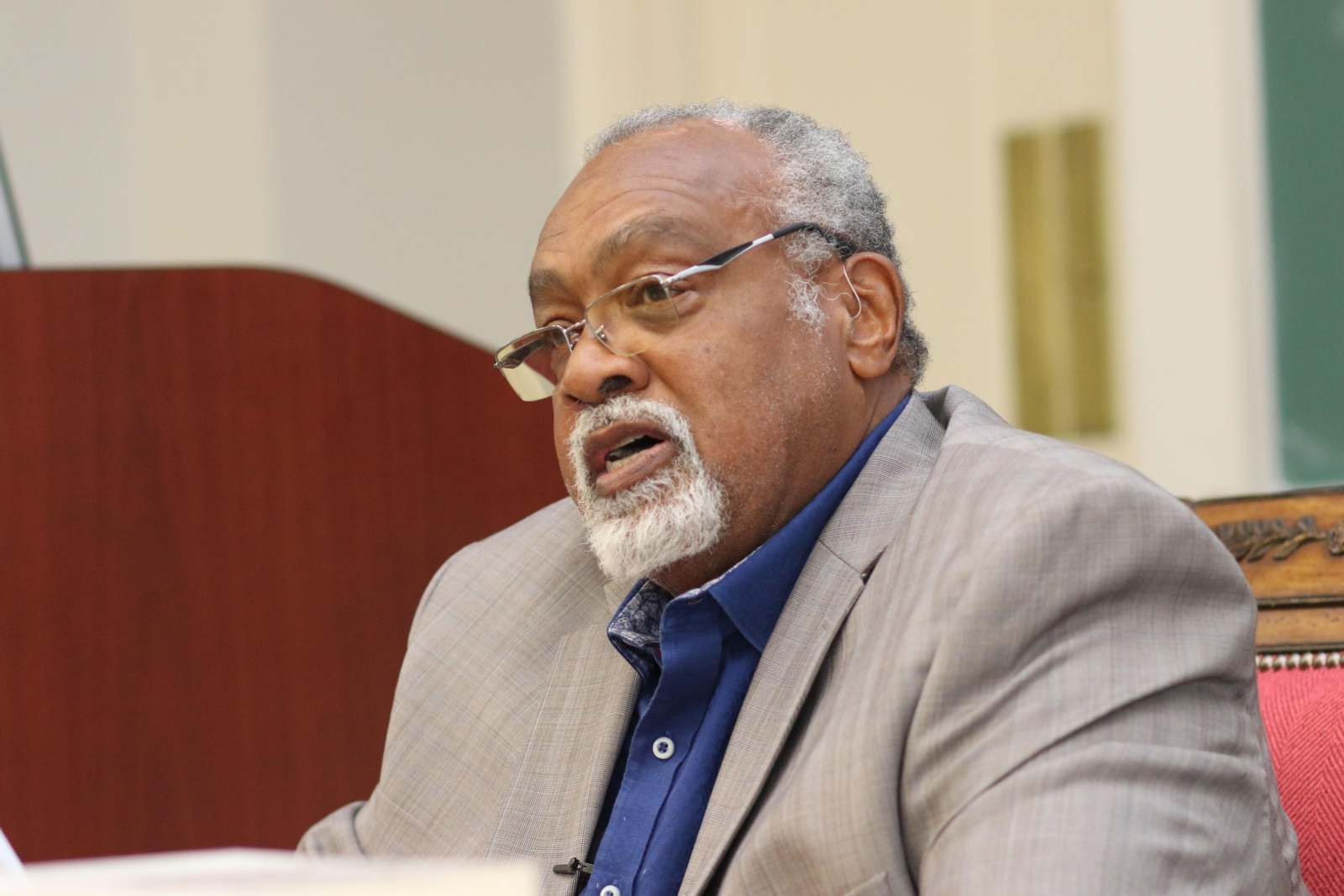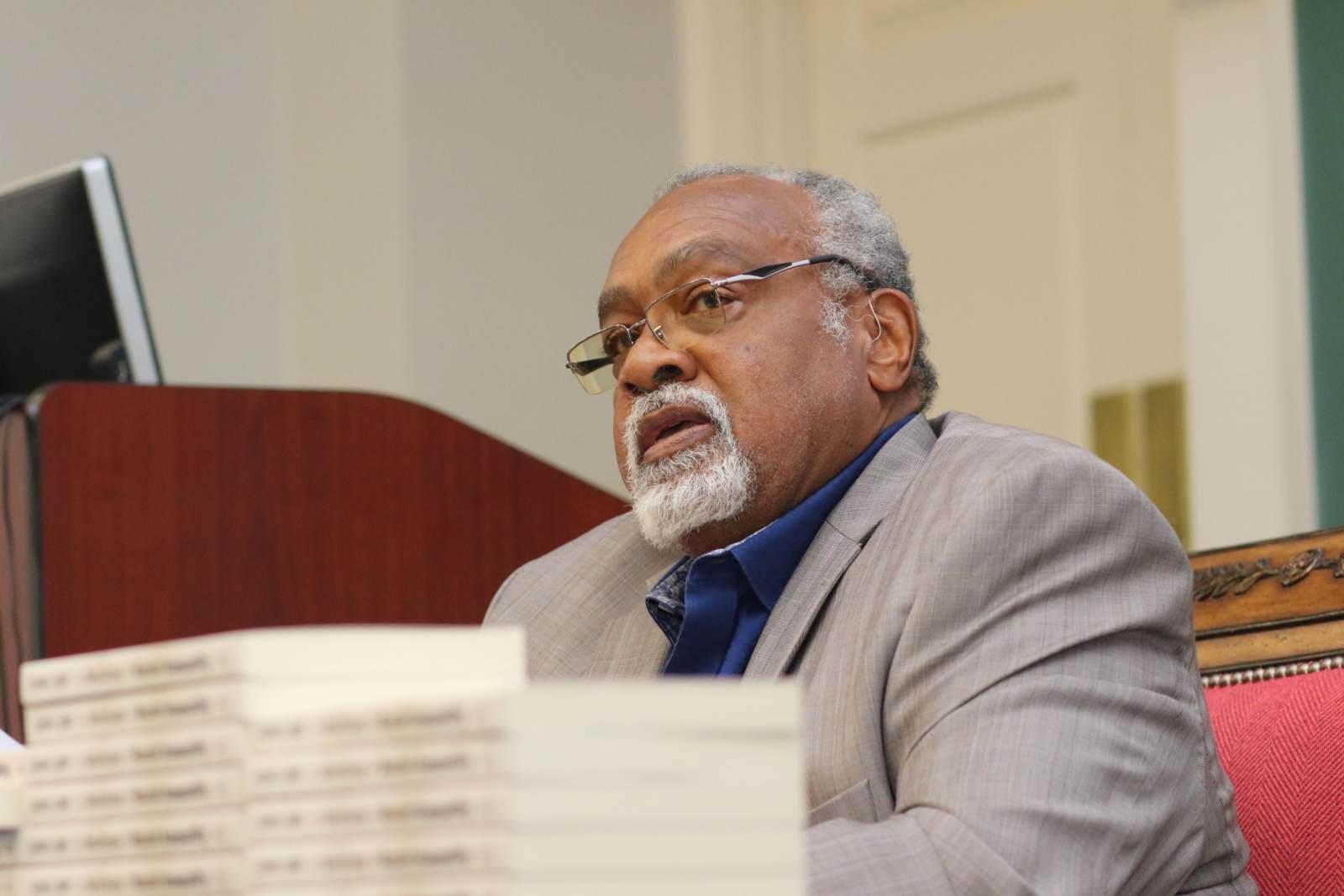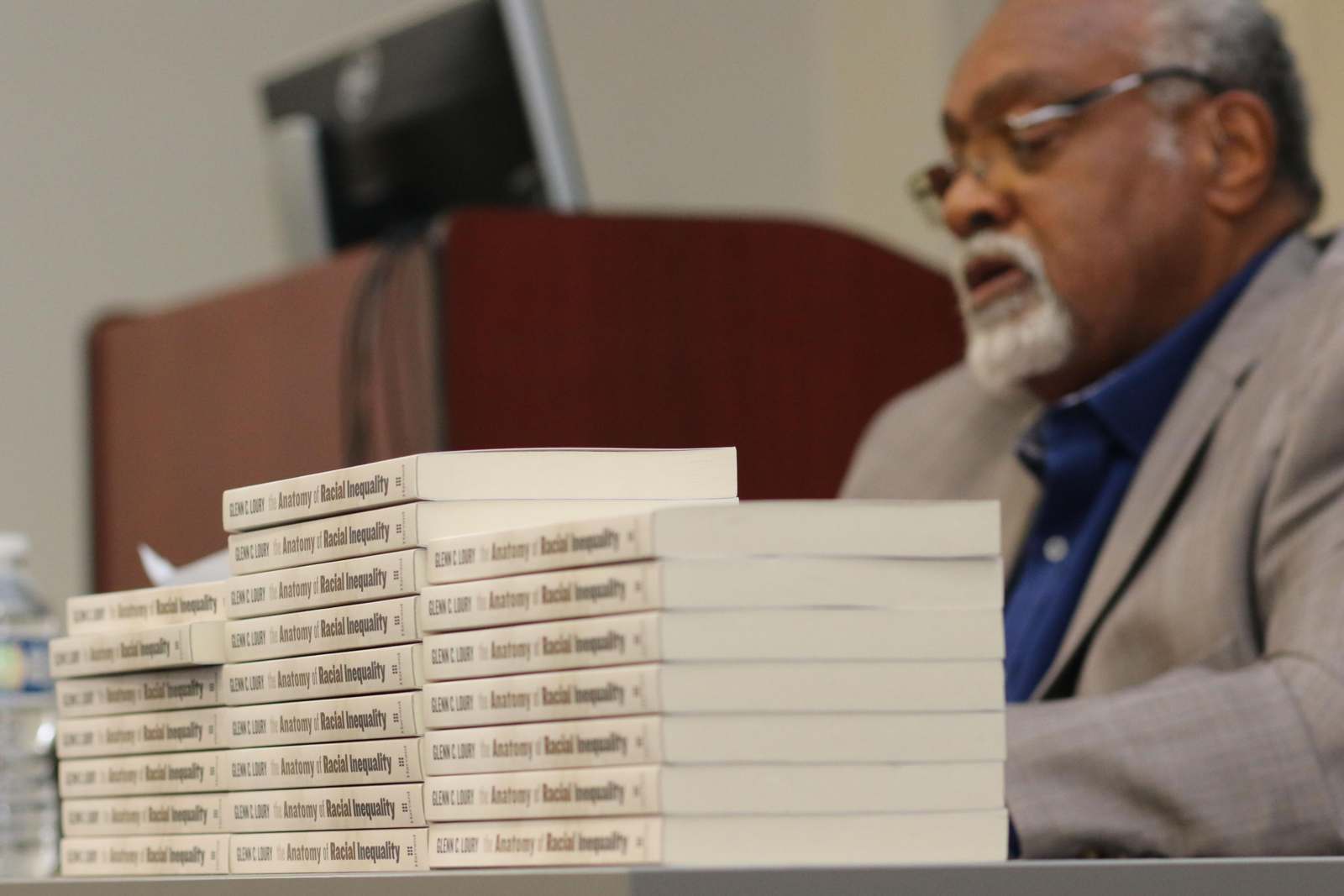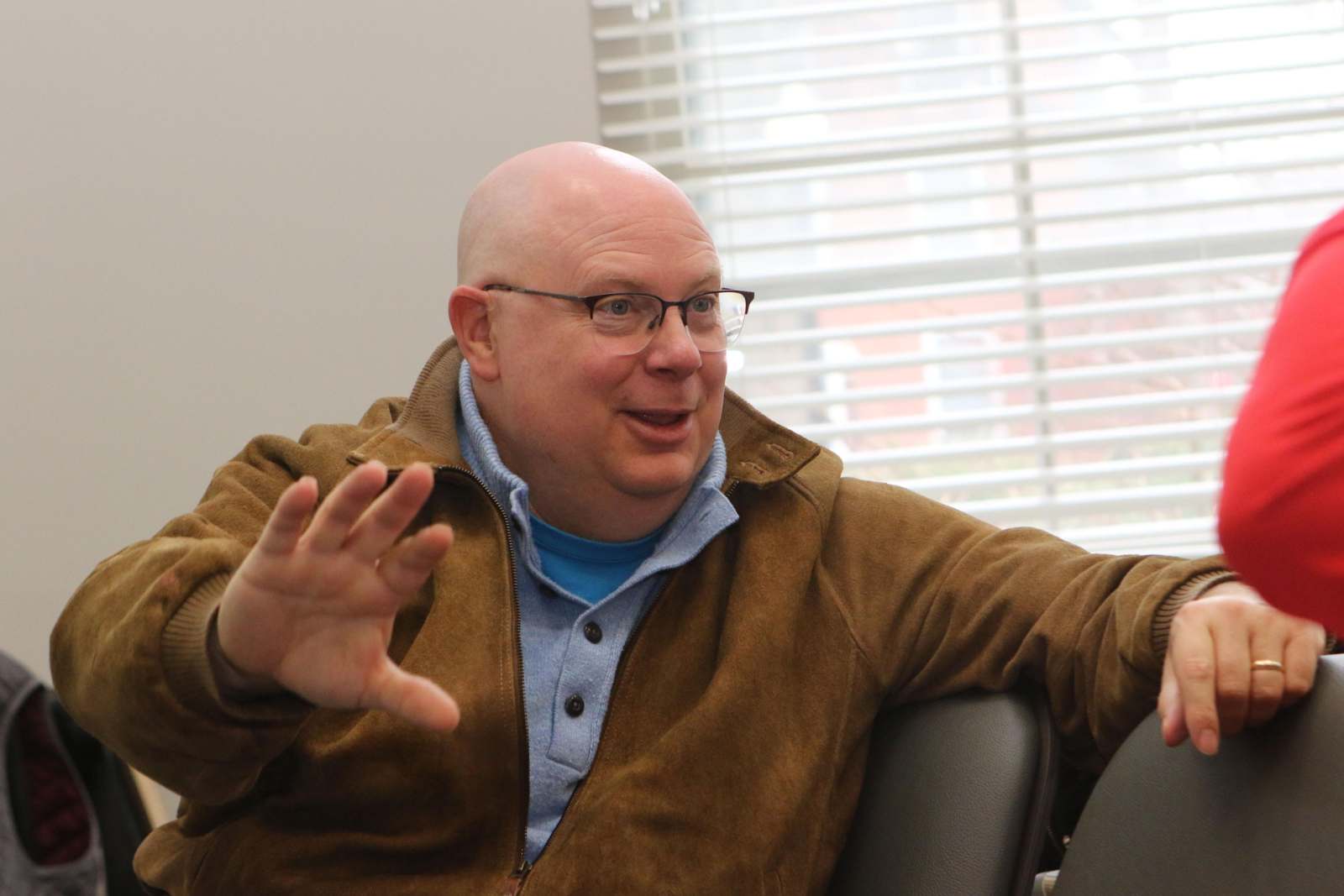Glenn Loury Lunchtime Talk: Naked Emperor Equilibria are Unstable
Glenn Loury, the Merton P. Stoltz Professor of the Social Sciences and Professor of Economics at Brown University has established himself as an important public voice in America today. He was the first African American professor of economics at Harvard University to gain tenure and similarly the first black economist to be appointed as a distinguished fellow of the American Economic Association, and has carved out a consistent a principled position on matters of American race relations.
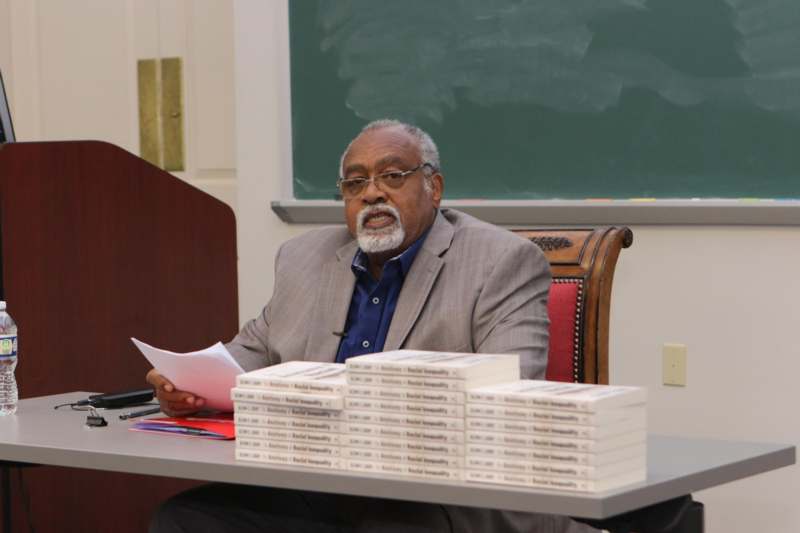
Presented here are excerpts from his lunchtime remarks:
"Racial disputes suffuse our public life – from school committee meetings to national electoral contests. This oppositional posture of many black intellectuals, politicians, journalists, and activists derives, in turn, from the fact of persisting black disadvantage in our country’s economic and social life. The reality here is too familiar, too widely known, to require elaborate recitation. Whether looking at health or wealth, education or income, policing or criminal victimization–the disadvantaged status of Americans who descend from slaves, here now in the third decade of the 21st century, more than 150 years after the Emancipation, is palpable. What are we to make of this?"
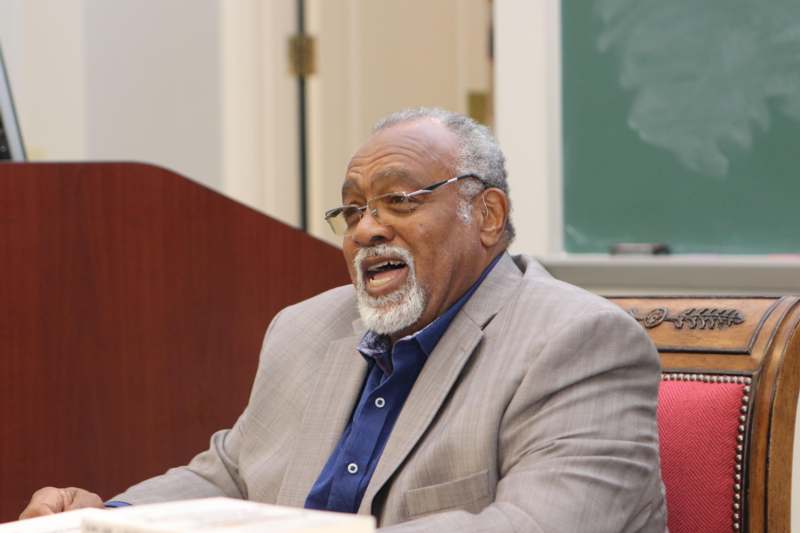
"That question has bedeviled me for decades – indeed, ever since I began graduate studies in economics at MIT a half-century ago. So, it is with heavy heart that I come before you this afternoon–a black American economist in this era of racial discontent in my country; an Ivy League professor and a descendant of slaves; a beneficiary of a civil rights revolution – now two generations past – which has made possible for me a life my ancestors only dreamt of. But, more than that, I am a patriot who loves his country. I am a man of the West, an inheritor of its great traditions. Thus, while I feel compelled to represent the interests of 'my people,' here and now, that reference is not unambiguous – invoking, as it does, both civic and communal antecedents! Which one to heed: the call of the nation, or the call of the tribe? In these brief remarks I will put loyalty to my nation ahead of fealty to my tribe."
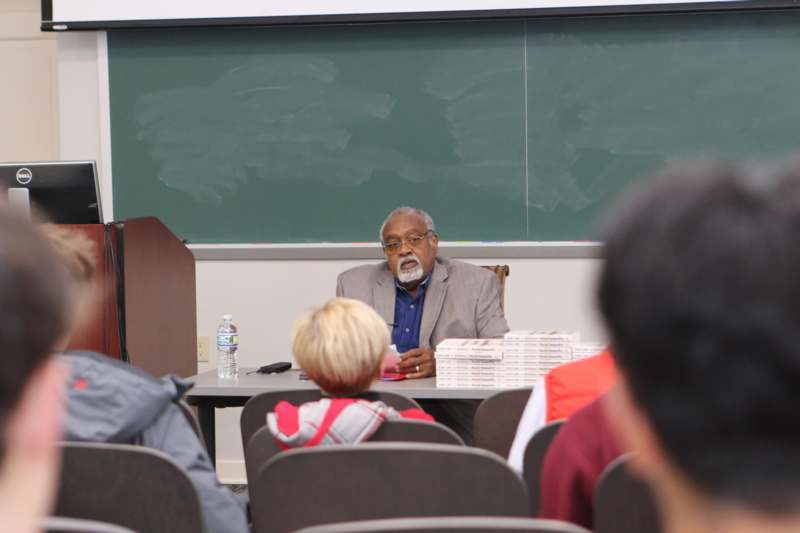
"Black/white disparities are real, of course. But there are marginalized people of all races in this country. Many. They all deserve our concern. Inequality is not mainly a racial issue. What’s more, the demographic landscape is shifting. Interracial marriage has grown. More and more people view themselves as 'multiracial,' including the first black President and Vice President of this country."
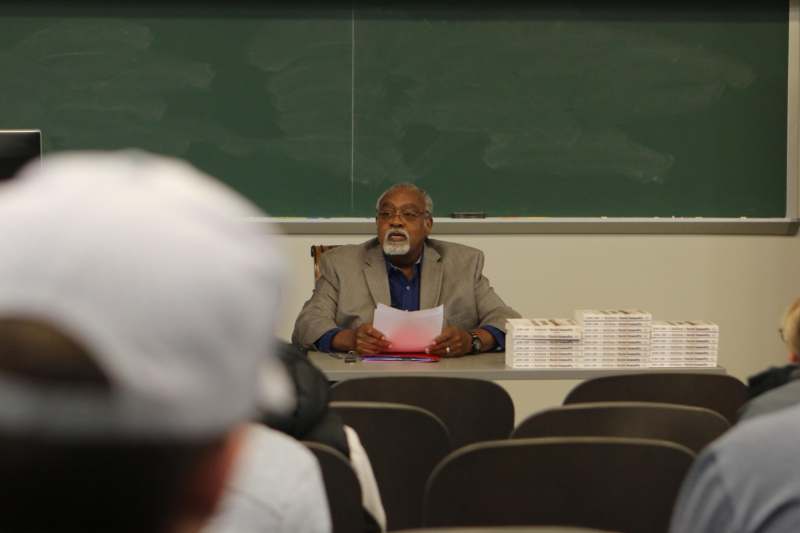
"In The Spiral of Silence, German political scientist Elisabeth Noelle-Neumann argues that some views on some issues in society can get defined in such a way that it is inappropriate to hold those views. As a result, people who in fact hold those views, but wish not to be shamed or ostracized, will refrain from expressing them. Hence, because they do not hear it said by others, anyone holding the view thinks they are one of very few who do. Not wanting to be alone saying something controversial, they continue to keep their thoughts to themselves."
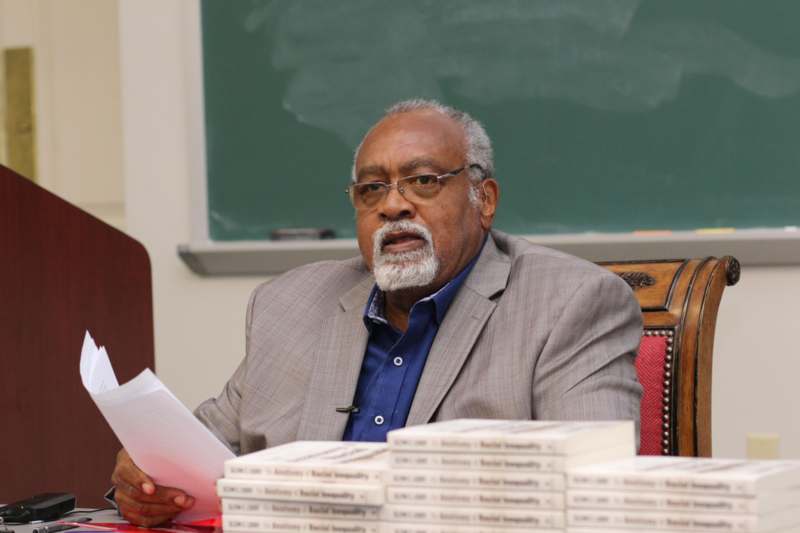
"A spiral of silence ensues. I call this kind of situation a “naked emperor equilibrium” – an ongoing circumstance in which the emperor has no clothes, everybody can see that he is naked, and yet everyone thinks: “I sure don’t want to be the only one to say it out loud.” We collaborate in a charade by keeping our real views to ourselves."
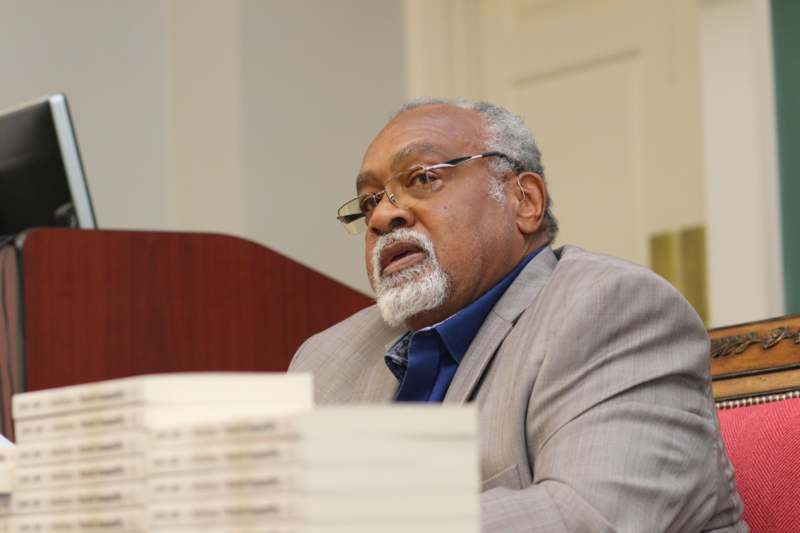
"The thing about that kid who says, 'the emperor is naked,' is not simply that he says it, or even that others hear him saying it. It’s that everyone knows that everyone else has heard him say it. Openly declaring this truth in the public square is a truly subversive act precisely because it induces a situation where widespread private knowledge of an unspeakable fact becomes a shared public consensus, making it safe for anyone else, no matter what motives they may harbor, to assert that fact."

